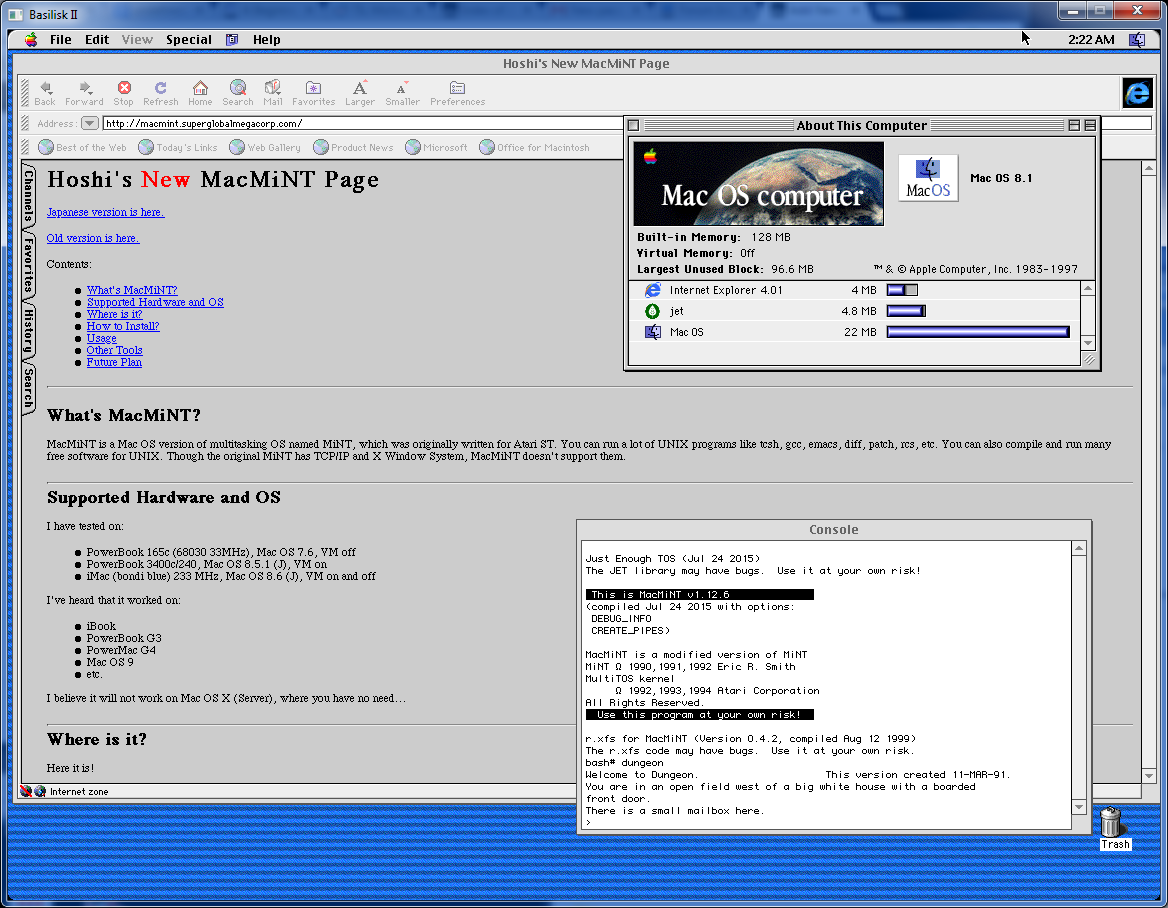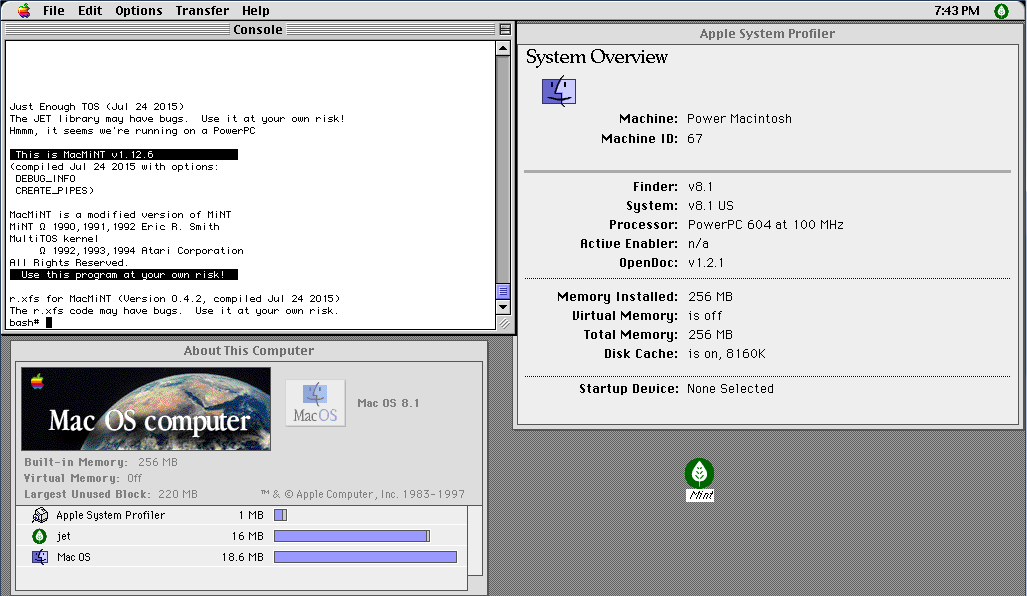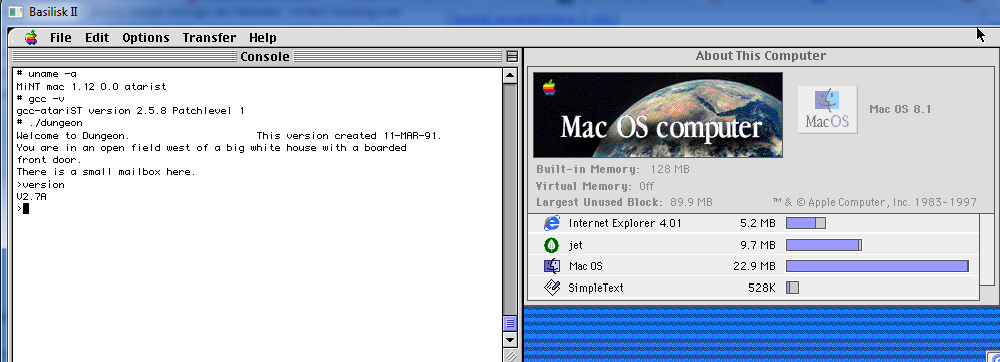One thing that always bothered me about MacMiNT is that I never could compile JET or MacMint itself. Â It requires the headers from MPW 3.2, or better known as the Macintosh Programmer’s Workshop, along with a single library again from MPW 3.2
MPW 3.3 won’t work, which is the only version I’ve had when I bought an extraordinarily heavy FORTRAN compiler for the MAC, Language Systems FORTRAN. Â I tried to get dungeon to work with that, but no dice.
But thanks to macgui, they have links to the 3.2 headers & libraries!
It took me a little longer than I’d like to figure out how to build the cross libraries, as I kept running the script from the script directory, not from /mint as I should have (is there any documentation?!). Â But I finally built the libmac16.olb and libmac.olb needed for MiNT programs to call the MacOS toolbox!
So now I’m able to compile Hoshi’s 1999 JET and MacMiNT!
For anyone interested, I’ve built a disk image here, that includes everything all ready to go. Â It runs great on my latest build of Cockatrice, although I haven’t made any Win32 builds just yet…. Â I suspect it’ll run on emaculation’s build of Basilisk II it really should only need a 68000 with 8MB of RAM or so. Â The disk image is 8MB, and uncompressed onto a hard disk takes up 35MB of space.
I’ve also made a small (100MB) mirror of the umich MiNT & MacMiNT install archives I could find right here.
Also, it runs dungeon,and with a lot of finagling, it’ll even run f2c dungeon! (needs a 68030 or higher).
For those who insist on running this on SheepShaver / Or PowerPC based machines, I’ve found that System 7 and an OldWorld ROM run it best.  System 8.0 and System 8.1 can run it (assuming they were installed as a PowerPC install), but System 8.5 and higher are not very cooperative when it comes to MacMiNT.
I suspect it must be the re-write of the nanokernel that PowerPC MacOS is based on.



